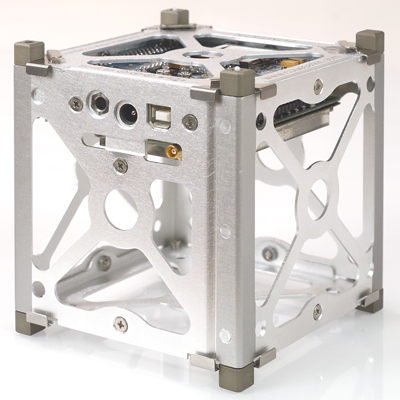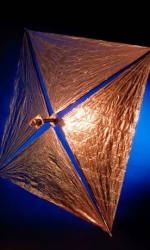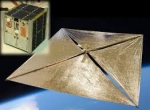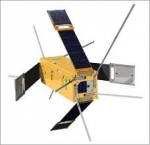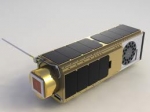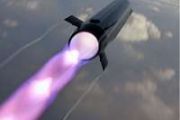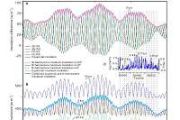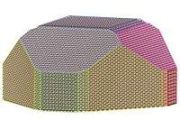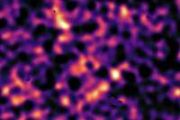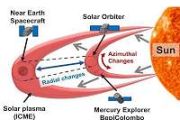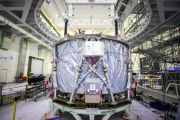Displaying items by tag: CubeSat
CubeSail
CubeSail is an educational satellite project at the Surrey Space Centre (SSC).
Several PhD projects are centred on its development, and it will serve as a technology platform for at least two further educational satellites developed at SSC. The CubeSail mission objectives are ambitious, and will raise the Technology Readiness Level (TRL) of several technologies to flight demonstration level. A key feature is the deployment of a 25m2 sail structure, which will be used to demonstrate the propulsive effect of solar radiation pressure (i.e. solar sailing) and will demonstrate the de-orbiting capabilities of the sail as a drag augmentation device.
CubeSail will be the first launched three-axis stabilised solar sail, and makes use of a novel centre of mass/centre of pressure (CM/CP) offset technique to provide enhanced attitude control. In order to achieve the mission objectives, CubeSail will build on small satellite experience at SSC, such as the STRaND-1 nanosatellite, launched on February 25th 2013.
Furthermore, the mission critical sail deployment mechanism has undergone an extensive testing and validation process as part of the ESA Gossamer Deorbiter project carried out at SSC. The Cubesail project is also financially and technically supported by industrial partners, Astrium and Surrey Satellite Technology Ltd.
Perseus satellite constellation
Perseus is a constellation of Earth observation satellite, based on the CubeSat platform.
Perseus will provide high quality imagery of the entire Earth, everyday, from a light CubeSat platform, offering imagery at an affordable price, making the data widely accessible. To bridge the data availability barrier, current and archived data will be available to all via a cloud based platform that encourages value added application development in addition to direct imagery access.
The Perseus constellation will utilize the CubeSat standard for cost-effective access to space as secondary payloads to larger, much more expensive Earth observing spacecraft. Traditional Sun-synchronous Earth observation orbits provide constant lighting conditions for data continuity through time. Synchronization of this constellation allows imagery of the entire Earth daily, which is something a traditional spacecraft would be incapable of doing, at a lower cost than one traditional spacecraft.
Canopus Systems US
Canopus Systems US, LLC, is an American company developping the Perseus constellation of Earth observation satellites.
Perseus will provide high quality imagery of the entire Earth, everyday, from a light CubeSat platform, offering imagery at an affordable price, making the data widely accessible. To bridge the data availability barrier, current and archived data will be available to all via a cloud based platform that encourages value added application development in addition to direct imagery access.
The Perseus constellation will utilize the CubeSat standard for cost-effective access to space as secondary payloads to larger, much more expensive Earth observing spacecraft. Traditional Sun-synchronous Earth observation orbits provide constant lighting conditions for data continuity through time. Synchronization of this constellation allows imagery of the entire Earth daily, which is something a traditional spacecraft would be incapable of doing, at a lower cost than one traditional spacecraft.
LunarSail
LunarSail is a cubesat-based space mission established by the Aerospace Research & Engineering Systems Institute, Inc. (ARES Institute).
LunarSail is designed to use a solar sail to propel a small spacecraft from Earth orbit onto a lunar orbit rendezvous trajectory and execute orbital insertion around the Moon. A primary objective of the LunarSail mission is to serve as a testbed for cubesat operations beyond low Earth orbit and applications requiring cislunar or interplanetary rendezvous. It is a proposed cubesat mission intended to demonstrate practical application of solar sail technology for propulsion, trajectory/attitude control and rendezvous with another body in space. With LunarSail, we will take advantage of the cubesat platform to conduct a first of its kind mission to use a solar sail to send a spacecraft to the Moon and then utilize the sail's unique characteristics to navigate into lunar orbit.
LunarSail will be the first solar sail to enter Lunar orbit. The first crowdsourced mission to cislunar space.
CubeSat AOCS pack
The CubeSat AOCS pack enables three-axis attitude control of CubeSats.
It is a product of SFL presenting high performance actuator and sensor package that draws directly from CanX-2 heritage and proven on-orbit performance. This suite of attitude sensors and actuators enables detumbling maneuvers, nadir pointing and three-axis inertial pointing while adhering to strict volume, mass and power constraints. The reaction wheels are smaller versions of the CanX-2 reaction wheel, developed in collaboration with Sinclair Interplanetary.
Salvo, real-time OS
Salvo is a Real-Time Operating System (RTOS), proposed for developing on-board software for the CubeSat projects.
Salvo is developed and distributed by the company Pumpkin Inc. It is claimed to be "the RTOS that runs in tiny places." ™
Salvo's modest ROM and minuscule RAM requirements mean that you can have event-driven, priority-based, multitasking applications in nearly any single-chip microcontroller, with plenty of room left for your application. With Salvo, you can:
- Implement new designs quickly
- Enhance functionality using existing resources
- Improve real-time performance
- Multitask
- Use memory efficiently
- Minimize costs
- Maximize reliability
Company: Pumpkin Inc.
Delfi-C3 nanosatellite
Delfi-C3 is a CubeSat satellite constructed by students at the Delft University of Technology in the Netherlands.
Delfi-C3 is the first nanosatellite student project from the Delft University of Technology in the Netherlands. The satellite is based on the CubeSat concept and a number of novel technologies will be tested on board the satellite.
It is a 3-unit CubeSat, and was launched on 28 April 2008, as part of the NLS-4 mission, aboard a PSLV rocket, from the Second Launch Pad at the Satish Dhawan Space Centre in India.
Innovative Solutions In Space (ISIS)
Innovative Solutions In Space BV (ISIS) is a vertically integrated company with a focus on delivering turn-key solutions based on small space systems (small satellites, CubeSat systems, etc.).
ISI was founded in January 2006 as a spin-off from the Delfi-C3 nanosatellite project from Delft University of Technology in the Netherlands.
O/OREOS satellite
O/OREOS (Organism/Organic Exposure to Orbital Stresses) is a nanosatellite of 5.5 kilogram, launched on November 19, 2010.
It is an automated laboratory that contains two separate experiments on board. It has been developed by the Small Spacecraft Division at NASA Ames Research Center, and successfully launched as a secondary payload on a Minotaur IV rocket from Kodiak Island, Alaska on November 19, 2010.
The O/OREOS satellite is NASA's first cubesat to demonstrate the capability to have two distinct, completely independent science experiments on an autonomous satellite. One experiment will test how microorganisms survive and adapt to the stresses of space; the other will monitor the stability of organic molecules in space.
Pumpkin Inc.
Pumpkin Inc. is an American company developping hardware and software products for the CubeSat platform.
